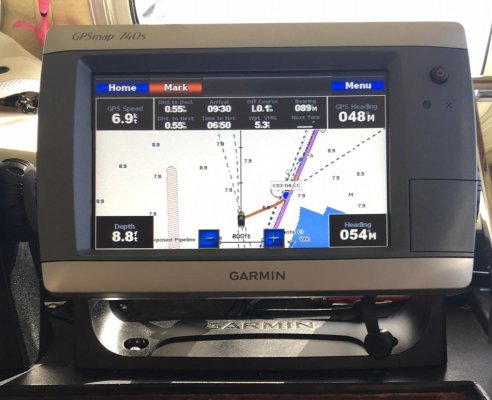Panacea,
We may agree to disagree, but in this day and age a compass is pretty much worthless, unless one needs heading info for other devices like radar, etc.
Years ago, it was a necessity... that's ancient.
I've been boating and flying for over 45 years, and have had the best and the minimal amount of equipment. Before loran and GPS one needed heading and a chart where they plotted a course and boated that course using a compass, and it worked fine. And, yes, I've had numerous failures of equipment and a few total failures and back then the compass was the life saver.
Today with GPS it's dirt simple. We only need to know where we want to go, and the TRACK that is required to get us there. Heading is not necessary at all. Now, if you only have one GPS on board, perhaps you will want a good old paper chart and a compass, and that's fine, if you wish, but I'd bet the majority of us have 2, 3 or 4 gps systems on board, and some are battery powered so if you totally loose ships power (and you have to have a MAJOR problem with that... usually with three batteries and a genset), then use your back up GPS to get you home.
Since Loran and GPS has been out, I have not needed a compass at all (but still required in some situations), and even with a total failure getting home has not been an issue.
I have no problem if one want a fancy compass, just not for me.



